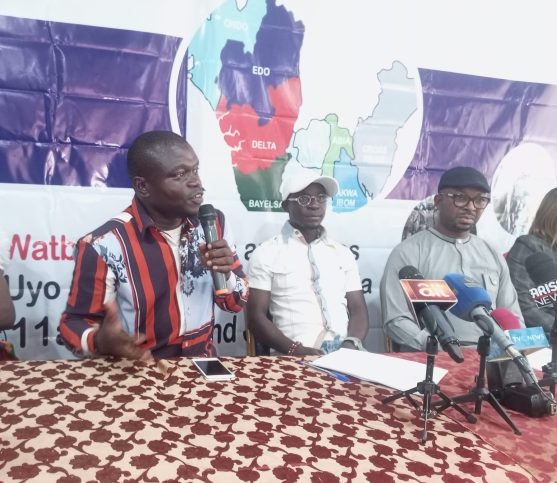Board dissolution: Niger Delta stakeholders back Tinubu on retaining NDDC MD Ogbuku
Best Renewable Energy Company in Nigeria > Article > Board dissolution: Niger Delta stakeholders back Tinubu on retaining NDDC MD Ogbuku
- by
- Article
Board dissolution: Niger Delta stakeholders back Tinubu on retaining NDDC MD Ogbuku
Stakeholders in the Niger Delta, comprising members of Movement for the Survival of Izon Ethnic Nationality in the Niger Delta (MOSIEND), Civil Society Organisations (CSOs), Community-Based Organisations (CBOs), Non-Governmental Organisations(NGOs) and other patriotic organisations have backed President Bola Tinubu’s decision to retain the managing director of the Niger Delta Development Commission, (NDDC), Mr Samuel Ogbuku and two others even after dissolving the board.
Following the dissolution, the president directed Shuaib Belgore, the Permanent Secretary of the Ministry of Niger Delta Affairs, which oversees the activities of the NDDC, to ask Ogbuku to continue as the commission’s chief executive until a new board is constituted.
The directive was greeted with criticism by some groups that claimed the president gave ‘preferential treatment’ to oil-producing communities.
Addressing a press conference in Uyo, Akwa Ibom State capital, on Sunday, the Niger Delta stakeholders appreciated the president for the initiative, noting that one of the setbacks of NDDC is the frequent change in leadership.
Afoegba Peter Goodyear, who read the statement on behalf of the groups, said: “We are relieved to know that the Managing Director, the Executive Director, Projects, and the Executive Director, Finance and Administration, were retained to manage the commission pending the constitution of a new board.
“At this time of our lives, the peace and progress of the region matter more to us than the infighting for positions and appointments.
“We say enough of the fight over the NDDC. We appreciate the news of the retention of the managing director and the others aforementioned.”
Speaking on the allegation that the NDDC board and some of the executive members were given preferential treatment, Goodyear said the President acted based on the enabling act of the NDDC, noting that Section 12 (1), (2) (3) of the act pointed out that the MD and the two executive directors are staff of the commission during the pendency of their tenure.
He stressed that in the event of a dissolution of the board, the managing director, and by implication, the two executive directors, can continue to run the commission until replacements are made.
Also speaking, Kennedy Tonjo West, national president of MOSIEND, wondered why some groups could agitate for the removal of the MD, who had barely spent six months in office and had no dent in his character that could warrant such agitation.
According to him: “You know how we, the Niger Deltans, clamoured for over three years for the composition of NDDC board, and just this January, the former president inaugurated the board. The board has had a quality engagement for the first time with the people of Niger Delta. They went ahead to have the Need assessment of the people of the Niger Delta states. Is it right to dissolve it now?”
He said further: “Mr President has the prerogative to dissolve or continue with any board; for him to do what he did showed that he has the interest of the people at heart and that you cannot come and kill a genuine and sincere vision a team has put in place because you want to prove a point. NDDC has been seen as a platform for political patronage, but the president wants to change the narrative. I think we should commend the president for that and support the board.”
Board dissolution: Niger Delta stakeholders back Tinubu on retaining NDDC MD Ogbuku

